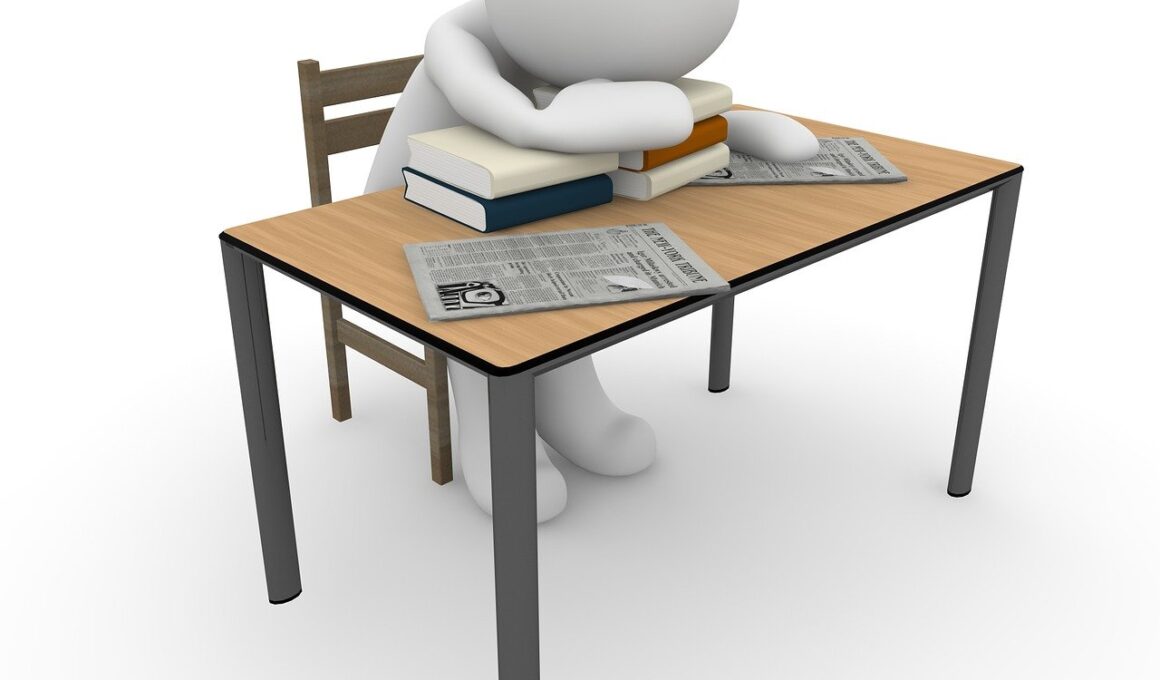The Benefits of Progressive Muscle Relaxation for Stress and Sleep Improvement
Progressive Muscle Relaxation (PMR) is a therapeutic technique designed to help alleviate stress and improve sleep quality. By systematically tensing and relaxing muscle groups throughout the body, individuals can cultivate a deeper sense of relaxation and awareness of bodily tension. This method can be especially beneficial in today’s fast-paced world when stress levels often reach new heights. Furthermore, PMR can significantly enhance sleep hygiene, promoting a more restful night’s sleep. Research indicates that individuals who practice PMR report lower levels of anxiety and enhanced feelings of tranquility, which can help prepare the body for restful sleep. Moreover, incorporating PMR into your nightly routine can signal to your body that it is time to wind down and let go of the day’s tensions. This ritual not only soothes the mind but also relaxes the body, allowing for a seamless transition from wakefulness to sleep. By employing techniques of tensing and relaxing specific muscle groups, anyone can experience reduced levels of stress. Over time, the practice of PMR can lead to a decrease in overall body tension.
Stress is often a significant contributor to sleep disturbances, making it crucial to explore practical methods like PMR. When we experience stress, our bodies can react with heightened tension in muscles, leading to discomfort and anxiety. By learning to relax these muscle groups intentionally, one can subsequently lower stress levels significantly. Frequent practice of PMR eventually assists in reprogramming the body’s response to stress. As individuals become more skilled at recognizing and releasing tension from their muscles, they naturally foster an atmosphere conducive to sleep. PMR can also aid in developing mindfulness, as it encourages practitioners to be present in their bodies. This relationship between mindfulness and relaxation allows safeguards against stressors. A sense of empowerment emerges, as individuals learn techniques to mitigate the impact of daily pressures. Enhanced bodily awareness can guide one towards effective stress management strategies. Furthermore, tailoring PMR around sleep rituals can enhance its effectiveness, creating a soothing pre-sleep environment. Using PMR as a nightly session can teach the mind to associate such practices with restfulness, making it simpler to transition into peaceful sleep.
How PMR Affects Stress and Sleep
The effects of Progressive Muscle Relaxation extend beyond just immediate relaxation, influencing long-term management of stress and sleep patterns. When practiced regularly, PMR can lead to heightened awareness of bodily tension and automatic responses to stress. This method helps individuals learn about their stress signals and the bodily reactions associated with them. By recognizing these signals, they can employ PMR techniques before stress escalates. In addition, the physical act of relaxing muscles can trigger the body’s natural relaxation response, leading to decreased cortisol levels—the hormone associated with stress. This process not only decreases feelings of stress but also promotes a conducive atmosphere for sleep. Over time, as individuals practice PMR, they begin to see a decrease in difficulty falling asleep and an enhancement in sleep quality. Sleep studies have shown that those who implement PMR report fewer awakenings during the night, resulting in a more restorative sleep experience overall. Consequently, PMR offers a dual approach—lowering stress and enhancing sleep—making it an invaluable tool for maintaining psychological and physical wellness.
Incorporating Progressive Muscle Relaxation into a daily routine can yield substantial benefits. Setting aside even a few minutes each day to practice can lead to noticeable improvements in both stress levels and sleep quality. To begin with, individuals should find a quiet and comfortable space, free from distractions. Choosing the right time, such as just before bed, can enhance the effectiveness of the practice. This recommendation aims to create a consistent routine, allowing for easier transition into relaxation and sleep. By focusing on different muscle groups, individuals can cultivate an understanding of their body’s stress responses. For instance, starting from the feet and moving upward can help establish a mindful routine. It is equally important to combine PMR with deep breathing techniques, enriching the experience significantly. Focusing on breathing can further enhance relaxation. Using this powerful combination creates not only an opportunity for stress relief but also deepens relaxation. Practitioners who divorce themselves from distractions and actively focus on bodily sensations will ultimately experience greater clarity of mind and a sense of peace.
Techniques for Effective PMR
To maximize the benefits of Progressive Muscle Relaxation, it is essential to follow effective techniques. First, ensure a calm environment free from noise and interruptions is crucial. Creating a comfortable setting can enhance concentration and focus. Begin by taking deep, cleansing breaths to settle the mind. When ready, tense a specific muscle group for about five seconds while inhaling. This action builds tension, followed by an immediate release while exhaling during six seconds, fostering relaxation. It is essential to observe the sensations that arise during both phases. Focus on the contrast between tension and relaxation for restfulness. Continue this process through different muscle groups—feet, legs, abdomen, arms, shoulders, and face—while maintaining an awareness of your breath. Gradual progression through the body enables awareness of tension release. Finally, visualize relaxation spreading throughout the body, reinforcing the sensations of tranquility. By systematically working through muscle groups and integrating deep breathing, the entire practice promotes an effective release of stress. This integration ultimately conditions the mind and body to embrace relaxation and discussion of the transition to sleep.
Regular practice of Progressive Muscle Relaxation can be the key to transforming one’s relationship with stress and sleep. This technique embodies simplicity and effectiveness, allowing individuals from all walks of life to benefit greatly. Moreover, the accessibility of PMR means it can be practiced almost anywhere—home, workplace, or even in transit. Awareness of its potential enables individuals to integrate similar practices within their lives, fostering resilience against everyday stressors. The results can be profound, as they cultivate a deeper understanding of personal stress levels. Over time, practitioners often report not only significant reductions in stress but also an overall enhancement in their sleep patterns. Carrying out PMR in a thoughtful manner—coupled with consistent application—builds familiarity with the technique, thereby improving outcomes. Encouragement from supportive communities or resources can motivate sustainable engagement in relaxation practices. Additionally, individuals can personalize PMR techniques, amplifying its impact. Tailoring experiences to one’s preferences ensures that practices remain engaging and effective. Learning to appreciate this practice can encourage ongoing commitment, ultimately leading to a healthier, more balanced lifestyle.
Conclusion: Embrace PMR for Better Stress and Sleep
In conclusion, integrating Progressive Muscle Relaxation offers remarkable potential for improving both stress management and sleep quality. As individuals learn to navigate today’s challenges, adopting PMR techniques becomes a proactive step toward wellness. The exploration of physical tension and relaxation paves the way for enhanced self-awareness. PMR opens the door to a constructive relationship with stress, ultimately contributing to improved sleep hygiene. Along the way, individuals discover tools to manage their mental landscape, bringing balance back into their lives. The practice provides techniques designed to be accessible, allowing seamless incorporation into daily routines. By embracing PMR, individuals foster resilience against stress and promote meaningful improvements in overall health. The commitment to this practice not only enriches personal experiences but also lays a valuable foundation for nurturing both the mind and body. The investment in time and effort yields long-term dividends—greater relaxation, improved sleep cycles, and a heightened sense of well-being. So, consider making PMR an essential component of your life, empowering yourself with the tools needed to conquer stress and reclaim restful sleep.
Through understanding its significance, embracing Progressive Muscle Relaxation becomes an invaluable practice, unveiling pathways to better stress management and sleep quality over time.





